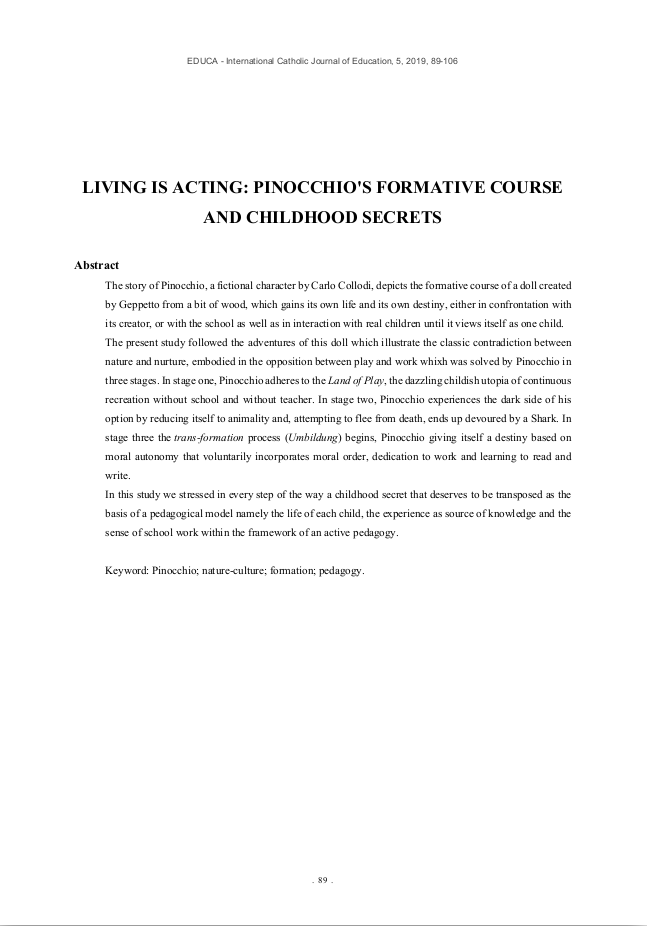Living is acting Pinocchio's formative course and childhood secrets
Main Article Content
Abstract
The story of Pinocchio, a fictional character by Carlo Collodi, depicts the formative course of a doll created by Geppetto from a bit of wood, which gains its own life and its own destiny, either in confrontation with its creator, or with the school as well as in interaction with real children until it views itself as one child.
The present study followed the adventures of this doll which illustrate the classic contradiction between nature and nurture, embodied in the opposition between play and work whixh was solved by Pinocchio in three stages. In stage one, Pinocchio adheres to the Land of Play, the dazzling childish utopia of continuous recreation without school and without teacher. In stage two, Pinocchio experiences the dark side of his option by reducing itself to animality and, attempting to flee from death, ends up devoured by a Shark. In stage three the trans-formation process (Umbildung) begins, Pinocchio giving itself a destiny based on moral autonomy that voluntarily incorporates moral order, dedication to work and learning to read and write.
In this study we stressed in every step of the way a childhood secret that deserves to be transposed as the basis of a pedagogical model namely the life of each child, the experience as source of knowledge and the sense of school work within the framework of an active pedagogy.

